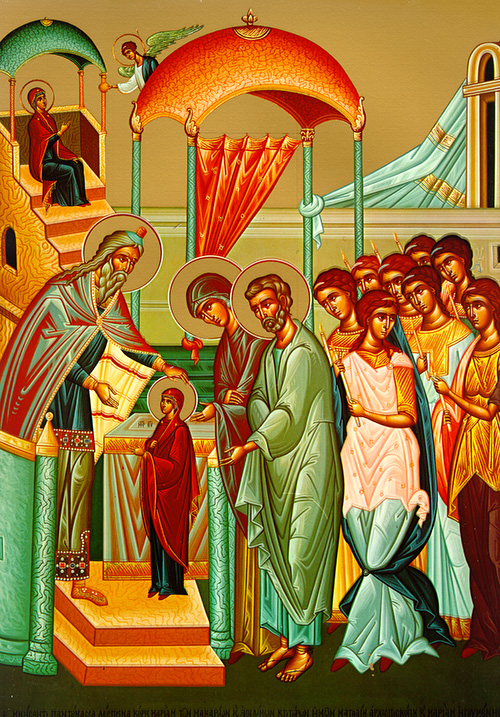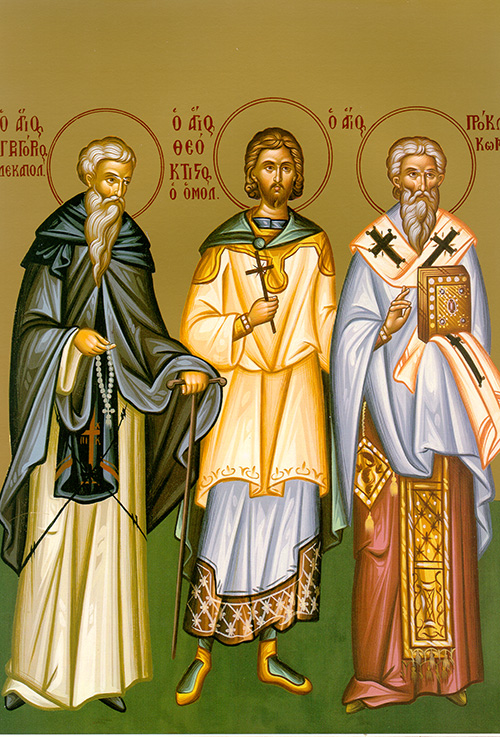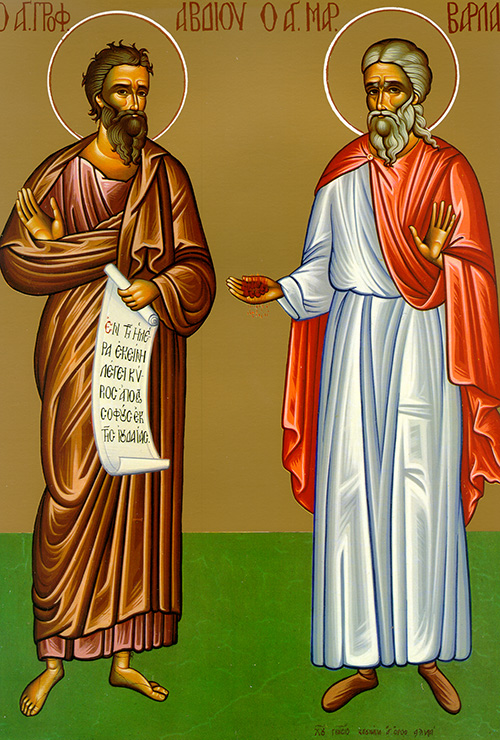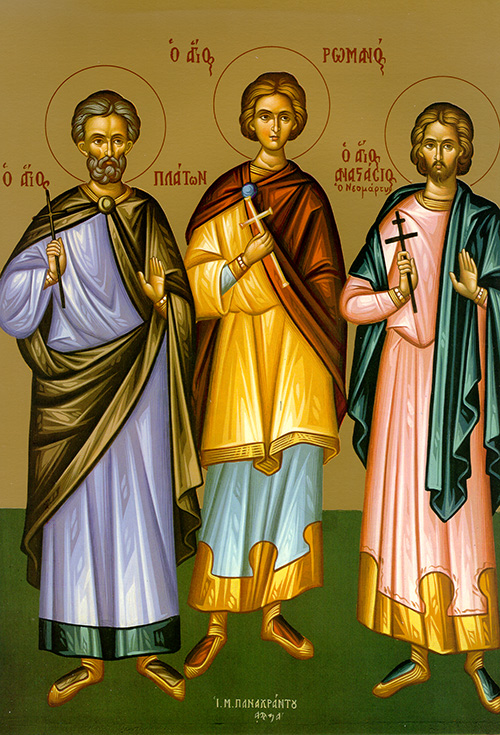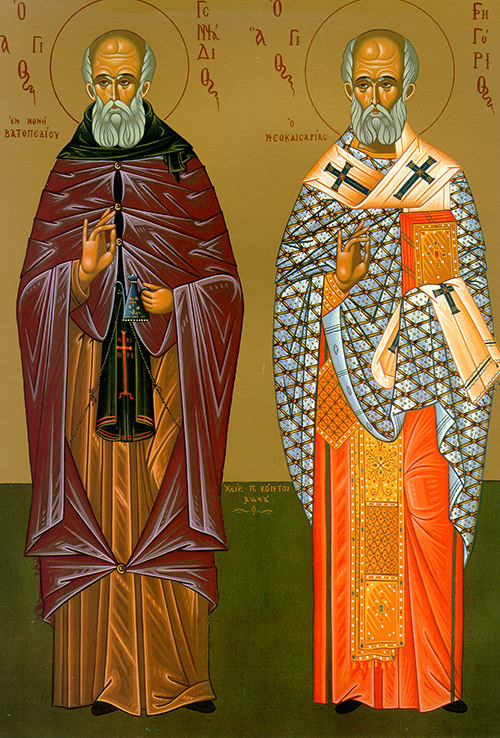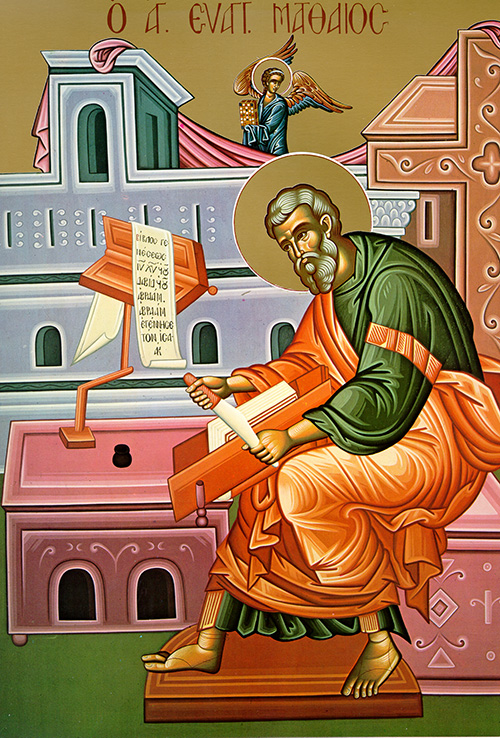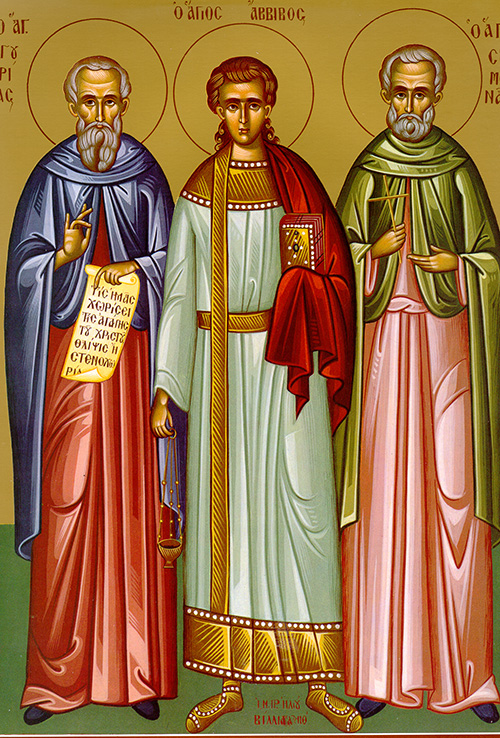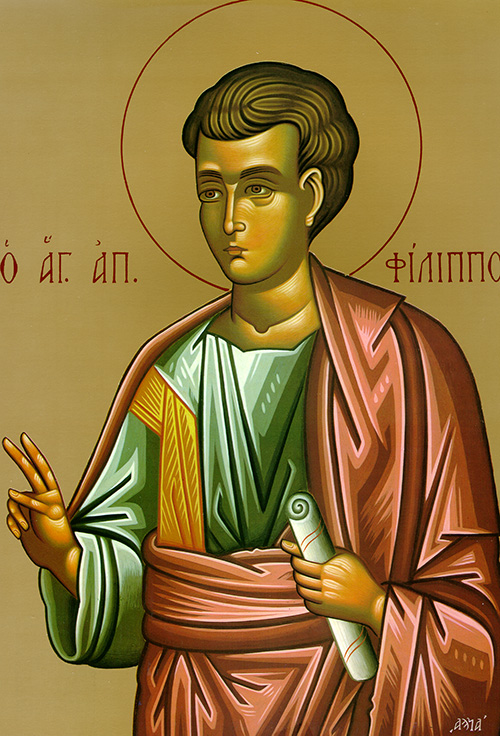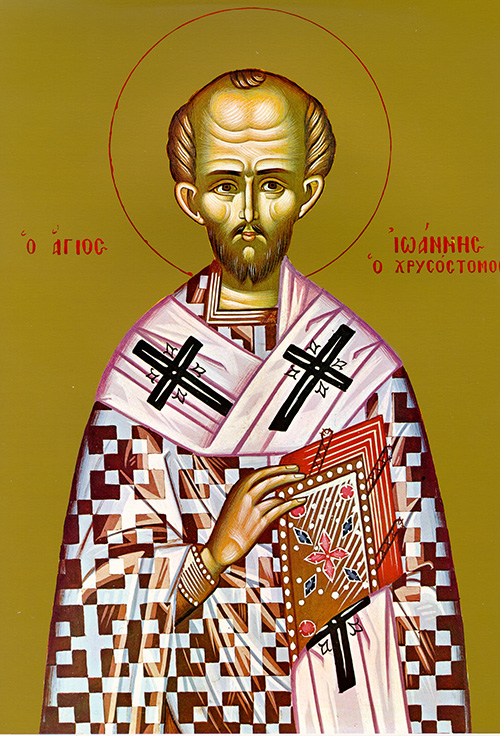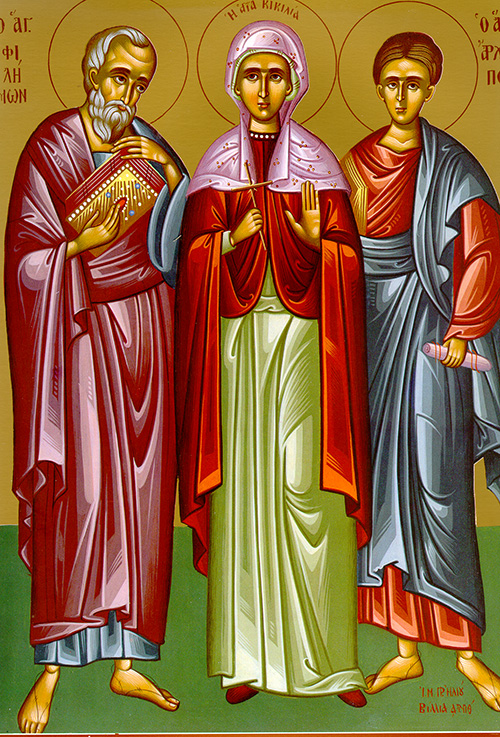

The Holy Apostles of the Seventy Philemon and his wife Apphia lived in the city of Colossa in Phrygia. After they were baptized by the holy Apostle Paul, they converted their house into a house of prayer, where all those who believed in Christ gathered and attended services. They devoted themselves to serving the sick and downcast. St. Philemon became bishop of the city of Gaza, and he preached the Word of God throughout Phrygia. Saints Philemon and Apphia, and also St. Archippus (who also lived at Colossa), all received the crown of martyrdom during the persecution of Nero (54-68). During a pagan festival an enraged crowd rushed into the Christian church when services were going on. All fled in terror, and only Saints Philemon, Archippus, and Apphia remained. They seized them and led them off to the city prefect. The crowd beat and stabbed St. Archippus with knives, and he died on the way to the court. Saints Philemon and Apphia were stoned to death by order of the prefect.
The holy martyrs Cecilia, Valerian, Tiburtius and Maximus: St. Cecilia, virgin and martyr, who it is said attained that double palm for the love of Christ at Rome in the cemetery of Callistus on the Appian Way. She was martyred after she buried with loving care the bodies of the martyrs Valerian, Tiburtius, and Maximus whom she led to Christ through her great devotion. (c. 230)
Troparion
O holy apostles, intercede with the merciful God that he may grant our souls forgiveness of sins.
Kontakion
We praise the apostles of Christ as stars who bathe the ends of the world with light: the glorious Philemon, and the consecrated Archippus, and Onesimus, and Mark, and Appollos, and with them the all-wise Apphia, singing: pray unceasingly for all of us.
Epistle
2 Corinthians 11: 1-6
Brothers and sisters: You must endure a little of my folly. Put up with me, I beg you! I am jealous of you with the jealousy of God himself, since I have given you in marriage to one husband, presenting you as a chaste virgin to Christ. My fear is that, just as the serpent seduced Eve by his cunning, your thoughts may be corrupted and you may fall away from your sincere and complete devotion to Christ. I say this because, when someone comes preaching another Jesus than the one we preached, or when you receive a different spirit than the one you have received, or a gospel other than the gospel you accepted, you seem to endure it quite well. I consider myself inferior to the “super-apostles” in nothing. I may be unskilled in speech but I know that I am not lacking in knowledge. We have made this evident to you in every conceivable way.
Gospel
Luke 9: 57-62
At that time Jesus was journeying along, someone said to him, “I will be your follower wherever you go.” Jesus said to him, “The foxes have lairs, the birds of the sky have nests, but the Son of Man has nowhere to lay his head.” To another Jesus said, “Come after me.” The man replied, “Let me bury my father first.” Jesus said to him, “Let the dead bury their dead; come away and proclaim the kingdom of God.” Yet another said to him, “I will be your follower, Lord, but first let me take leave of my people at home.” Jesus answered him, “Whoever puts his hand to the plow but keeps looking back is unfit for the reign of God.”
Icon courtesy of Jack Figel, Eastern Christian Publications – ecpubs.com


